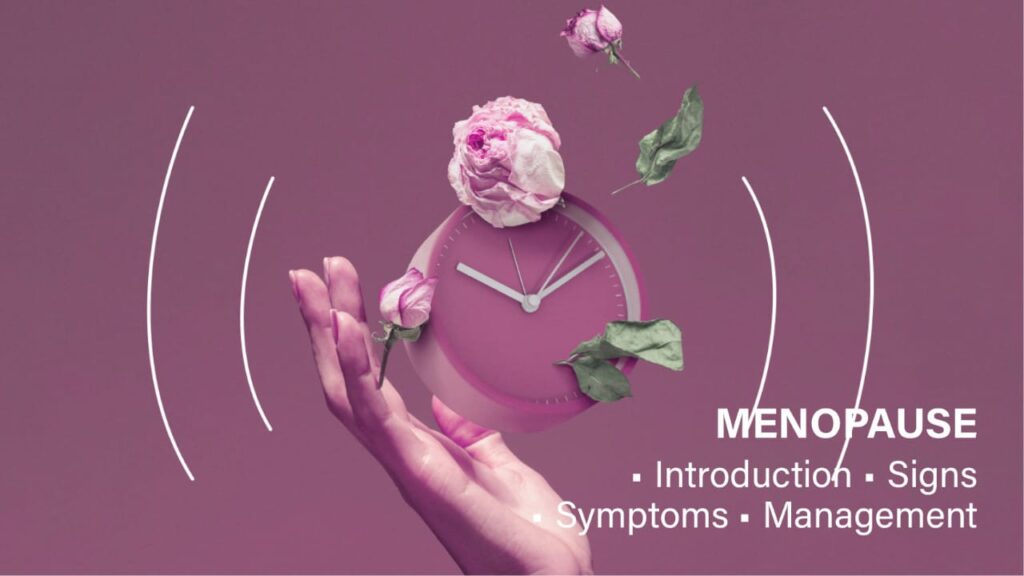MENOPAUSE:
Women spend up to one-third of their lives in a menopausal state. Derived from the Greek word; MEN – month, PAUSE – cessation. Cessation of menstrual periods due to the declining estrogen and progesterone produced by the ovaries. It is a retrospective diagnosis. A woman should be free of periods for one year from the last menstrual period.
The average age of menopause is 51 years. Menopause is 5 years earlier in the Indian population. The average duration of perimenopausal transition is 5 years. It is a duration where a woman passes from the reproductive stage of life to post-menopausal years.
Tell tale of menopause is variability in cycle length. Cycle length exceeding 42 days suggestive of menopause within 1 or 2 years. The Department of Obstetrics & Gynaecology at Trustwell Hospitals provides expert solutions from the best experienced Doctors.
Early Menopause:
- Smoking
- Lower education
- Lower socioeconomic status
- High altitude
- Family history of early menopause
- Undernourished state
Late Menopause:
- Multiple childbirth
- Prior use of oral contraceptive pills
- Alcohol consumption
What Are the Signs and Symptoms Associated With Menopause?
Irregular infrequent cycles, scanty flow.
- Vasomotor Signs – Hot flushes, night sweats, palpitations.
- Psychological Symptoms – Insomnia, poor memory, loss of confidence, mood changes, anxiety, loss of libido, difficulty in concentration and making decisions, irritability.
- Genitourinary Symptoms – Vaginal dryness, stress or urge urinary incontinence, recurrent urethritis and vaginitis.
Complications:
Around the same time that menopause happens, the chances of various other health-related issues increase. It can be hard to distinguish the complications of menopause and those related to aging.
Some Complications or Health Changes You May Experience Around This Time Include:
- dyspareunia, or painful intercourse
- osteoporosis, or weaker bones with reduced mass and strength
- mood or sudden emotional changes
- urinary incontinence
- heart or blood vessel disease
- weight gain and change in body composition.
How is Menopause Diagnosed?
Most people know they are approaching or starting menopause when they begin having symptoms such as hot flushes or when they have not had a period for 12 months.
Blood tests like levels of FSH and estradiol, a form of estrogen, combined with a lack of menstruation for 1 year, can usually confirm menopause.
Treatments:
- hormonal treatments to help manage hot flushes and other symptoms.
- lubricants for vaginal dryness.
- supplements and medications to help prevent osteoporosis.
If you experience discomfort as menopause approaches, talk with a doctor.
Home Remedies and Lifestyle Strategies:
- Keep Cool and Stay Comfortable – Dress in loose, layered clothing that you can remove or put on easily to help manage hot flushes. Keep your bedroom cool and avoid heavy blankets to reduce night sweats. Carry a portable fan to help cool you down when you feel flushed.
- Exercise – Current guidelines recommend getting at least 150 minutes of moderate exercise and two sessions of resistance training per week. Exercise can help strengthen your body, boost overall well-being, and manage weight.
- Communicate Your Needs and Get Support – Mental health concerns, such as depression, anxiety, sadness, and isolation, can occur during menopause. You can try talking with family or friends, joining a local support group, or seeking counselling to help you manage the changes that are occurring.
- Dietary Choices – Dietary choices during menopause can help manage depression, weight, skin changes, and even vasomotor symptoms. Getting a variety of essential nutrients through a varied, balanced diet can boost health.
- Supplements – Herbs and supplements may help manage some effects of menopause. For instance, calcium, vitamin D, and magnesium may help reduce the risk of osteoporosis. Consulting a doctor regarding nutrition supplements helps in proper selection required for your body.
- Manage Stress
- Yoga
- Breathing exercise
- Meditation
- Skin Care – Apply moisturizers daily to reduce skin dryness. Try to avoid excessive sun exposure and harsh cosmetics and cleansing products, too. They may dry out your skin.
- Sleep Management – Getting enough sleep is essential for overall health and well-being.
Talk with your doctor if you regularly have trouble sleeping. They can help you manage it and get a better night’s rest.
- Avoid Smoking and Alcohol Use.
Other Remedies
Some people use alternative remedies to increase estrogen levels, but there’s not enough evidence to prove they are safe or effective.
These Alternative Remedies Include:
- Soy Isoflavones
- Vitamins, Such as Vitamin E
- Melatonin
- Flaxseed
